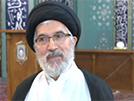
The Scientific View
Human behavior and actions are controlled by information that our brains and nerve cells store. This information is received and perceived through our senses and stored within our brain as memories, thoughts, emotions and ideas. The stored information drives processes that affect one’s decision-making to a great extent, finally resulting in one’s outward behavior and actions.
Surprisingly enough, around 80% of all sense perception reaching our brain comes from the eyes alone! One can imagine the significant role played by the eyes in driving our mental processes and behavior. Whether it is watching a movie, playing videogames, or regular day-to-day activities that our eyes perceive – they all play an important role in affecting our thoughts, actions and behavior. If one is not selective about filtering indecent and inappropriate scenes from being viewed, one can be assured that it will bring about negative responses and unworthy behavior!
In a society where the eyes are not protected from viewing indecent or provocative sensory information, it should not be alarming to see the decay of modesty and higher morals in society. This is where one must realize the blessing of Hijab; the physical Hijab as well as the Hijab of the eye are a divine blessing for believers to avoid pitfalls and create a healthy society.
The Islamic View
The very reason that Islam considers mixed gatherings as prohibited is because they violate physical and social Hijab to a great extent. Our respected Maraja Taqleed and scholars unanimously agree with the impermissibility of mixed gatherings.
Imam Sadiq (A.S) said: “Whenever the eye looks at something forbidden, a knot of desire is tied in the person’s heart, and that knot will only be untied by one of two conditions: either by weeping out of grief or regret in true repentance, or by taking possession of what one desired and looked at.” Clearly, the non-observance of physical Hijab by women has the potential to encourage forbidden gaze by the opposite gender. Indeed the dangers of not observing Hijab can be realized through the wisdom of our infallibles.
In addition, lack of modesty in the society has the potential to impede its growth and corrupt it through diverting minds into unnecessary or indecent thoughts and behavior.
Every society or country chooses to impose a dress code for its citizens. What better dress code can one impose than the Islamic Hijab? In the eyes of a believer, is there anything better than the Islamic standards of modesty?
In conclusion, the beautiful blessing of Hijab extends itself from being just a personal choice to one that impacts greater good of the society. By choosing to observe Hijab, Muslim men and women not only elevate their own spirituality but they in fact help in elevating our social fabric and together prepare for the return of our awaited Imam (A.S).
Taken from: Ahlulbayt Islamic Mission
 Muslim Women - Islam Guidance
Muslim Women - Islam Guidance









